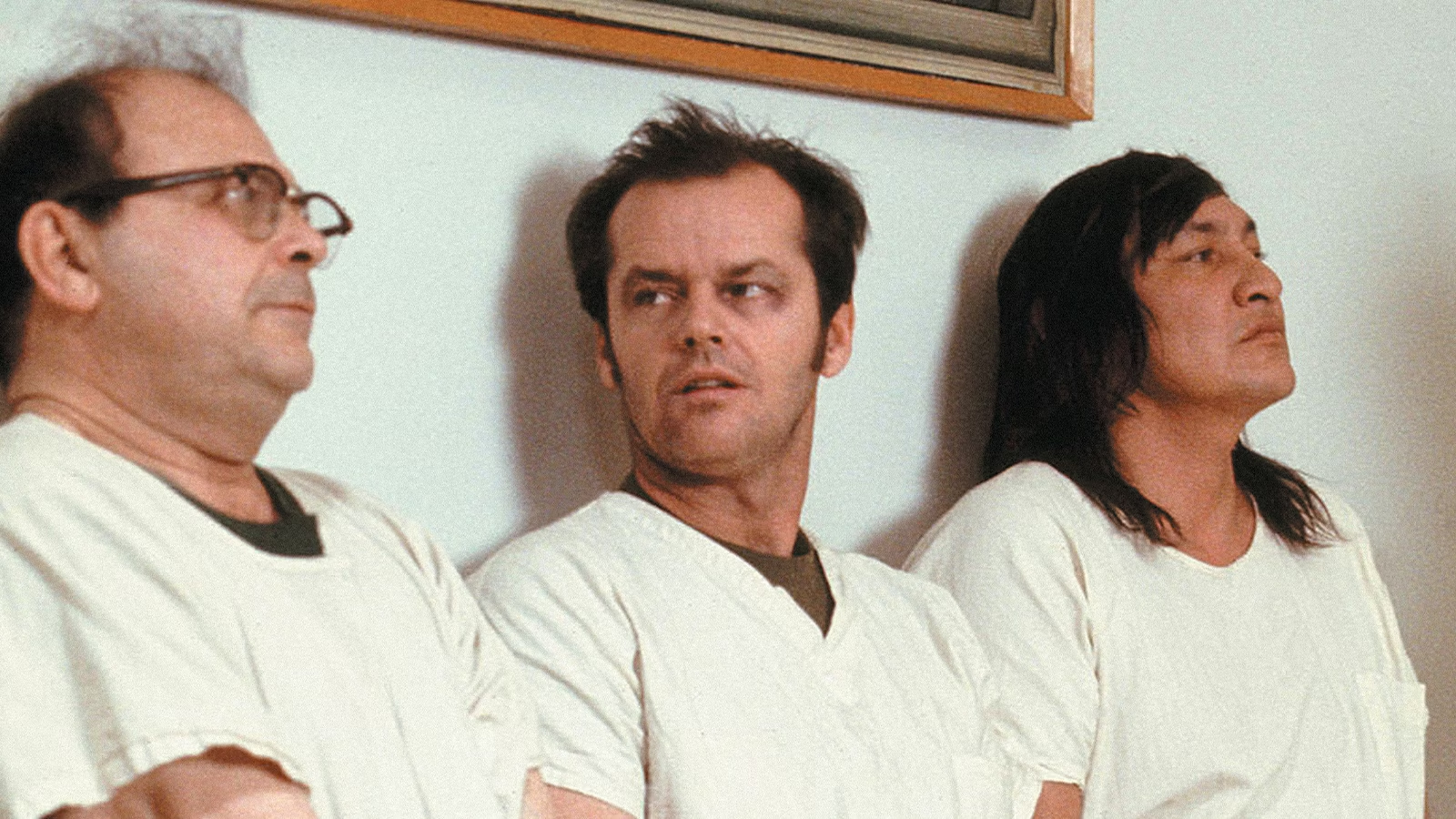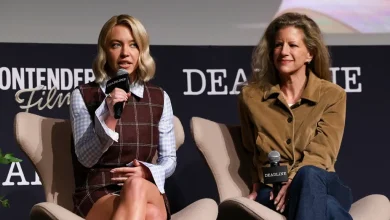PROMOTION: How One Flew Over The Cuckoo’s Nest Became A Rebellious Classic

For five decades now, One Flew Over The Cuckoo’s Nest has been challenging audiences; enthralling them, prodding at big questions, giving no easy answers, all while delivering some of the greatest characters committed to film, legendary performances from several Hollywood masters, and closing out on one of the most chilling film endings of all time. Now that it returns in 4K, remastered for its 50th anniversary, it’s the perfect time to revisit a stone-cold ‘70s classic.
Adapted from Ken Kesey’s novel, Miloš Forman’s legendary film takes place in a mental health hospital where the patients live a sedentary life; its inhabitants have complex needs, each there for a variety of reasons. But being on the inside means a stunted life – until Jack Nicholson’s criminal Randle McMurphy turns up. Feigning mental illness to escape the physical labour he’s been sentenced to, McMurphy initially delights in throwing the ordered world of the hospital into chaos, much to the chagrin of the nurses. But over time his transgressions reveal two major truths; firstly, that the patients really aren’t being given a chance to truly live, and secondly, that the rule of fearsome Nurse Ratched (Louise Fletcher) is more dangerous than it lets on. It’s a film about rebellion, made amid one of the most rebellious periods in Hollywood history.
Nicholson has many legendary performances under his belt, but McMurphy remains one of his all-time-greats. He exudes unpredictability; in a world of order, he embodies its sheer antithesis, always plotting new ways to undermine the authority of the nurses. At first, this is for personal gain; he cajoles his fellow residents into voting for the World Series to be shown on the TV (denied by Ratched), relishing in the fact that he’s no longer being worked for his sentence. But then, his wild schemes – pointing out methods of escape; busting everyone out of the hospital for a reckless fishing trip; bringing in women for a booze-glugging Christmas party – start enlivening the other patients, who revel in his company. And they, too, grow on McMurphy. His actions are often indefensible, but their results undeniable.
The rebel spirit of One Flew Over The Cuckoo’s Nest still yells, loudly.
Among those fellow residents, there are several legendary performances; there’s standout Brad Dourif (later the voice of Chucky) as Billy Bibbit, the youngster with a stammer whose confidence grows under McMurphy’s influence; a young Danny DeVito and Christopher Lloyd as, respectively, Martini and Max Taber, who bring real spark to the ward; and most importantly, Will Sampson as ‘Chief’, the Native American patient who (seemingly) neither speaks nor hears, and yet forms the most unexpected bond of all with McMurphy. Across its runtime, Cuckoo’s Nest delivers an ensemble of unforgettable characters, all empowered to rebel in their own ways against a dehumanising system.
It takes a formidable foe to strike such fear into these men, but Nurse Ratched does it with terrifying ease; Lousie Fletcher plays it steely as the head administrative nurse whose tight-ship approach actually hides a monstrous desire for control; dishing out inhumane treatments to those who disobey her, using the entanglements of bureaucracy to keep her own way, and delivering a particularly cruel blow in the film’s final act. Just as McMurphy’s acts of defiance grow over the course of the film, the narrative slowly unveils just how much power Ratched has, and what she’s willing to do to hold on to it as the hospital slides out of her control. While Nurse Ratched has becomes one of cinema’s defining villains, there’s a real groundedness to her, never slipping into evil caricature.
It’s no wonder One Flew Over The Cuckoo’s Nest won the ‘big five’ at the Oscars – Best Picture, Director for Forman, Actor for Nicholson, Actress for Fletcher, and Adapted Screenplay for writers Lawrence Hauben and Bo Goldman – when it arrived. 50 years on, the film remains a New Hollywood classic, embodying everything that made 1970s cinema so special – a time in which the craft of filmmaking was changing, becoming more expressive with influence from European cinema; where the boundaries were being pushed with nuanced narratives and complex moralities. The rebel spirit of One Flew Over The Cuckoo’s Nest still yells, loudly.
Now’s the perfect time to revisit this legendary classic, available in 4K for the first time – visit warnerbros.co.uk for more.





